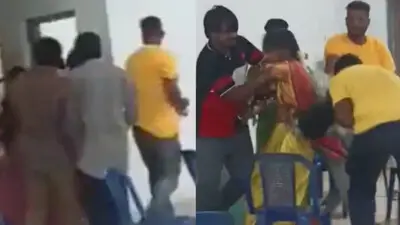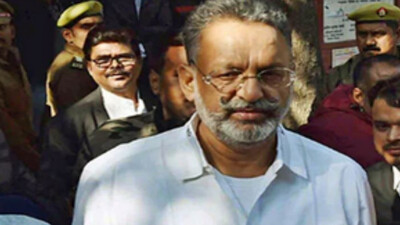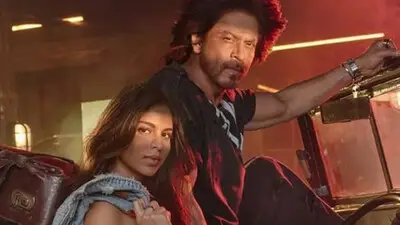Recommended Stories
However, what lies on the other side of this "cool" trend may be a health hazard, say experts who point out that absence of guidelines including mandatory health permits or certificates makes it easy for anybody to open a tattoo studio and register it as a business.
"Here you can register simply under services, or as a salon or parlour, there is no specific clearance needed by the health ministry," says Abhishaik Madhur who owns Indelible Tattooz in the national capital.
his has given rise to tattoo studios mushrooming in the country in recent years. An informal count puts over 50 tattoo parlours in Delhi alone.
Since there are no regular health inspections, studio owners say they have evolved procedures to protect themselves in case of a dispute and also to ensure safety of the clients.
Some studios even make customers sign a consent form.
"The purpose of the consent form is to assess their medical conditions to determine their eligibility. Tattoos are not advisable if somebody is taking anti- coagulant which is a blood thinning medicine, for pregnant women or someone prone to allergy," says Madhur.
As per one of the consent forms, the customer "freely accepts and expressly assumes any and all risks that may arise from tattooing". These risks could include skin infections and blood borne diseases.
Dr NG Patwardhan, Vice President, Indian Association of Dermatologists, Venereologists and Leprologists says, "Use of unsterilized equipment can lead to infections and transfer of HIV virus. Even hepatitis B can be contracted. Also the body sometimes may not tolerate the pigment used and develops a condition of inflammation known as Foreign Body Granuloma."
He adds, "The number of people who come to us with complications arising out of tattooing is not that large. But it all depends on how the tattooing is done, who does it. If practices are safe, there is no risk."
Since no health clearances are handed out, studio owners say it gets difficult for them to verify credibility.
We are often approached by clients with queries. Even doctors are not asked as many questions as we are," says Ketan Saindane owner of Ketology Inkholics tattoos in Mumbai.
Tattoo lovers say they are quite aware of the risks involved in getting a tattoo and take necessary precautions.
"I have wanted a tattoo for a long time now, but choosing a parlour is very difficult. It is risky business. I did not want to go to a shady place.If there were some sort of health certificate given out, I would know which studio has passed health checks and is safe to go to. As if now all I can do, is follow the word of mouth," says Anurag, a law student.
Even studio owners feel the exisiting lacuna in health regulations should be filled.
"There are talks within the tattoo industry. We are planning to form an organisation which will raise this issue.
I myself approached the Municipality for a health permit in 2009. But they had no idea how to go about it," says Saindane.
Abhishaik Madhur, who owns a tattoo studio in Delhi agrees and points out," In other countries license issues come under the Health ministry. We hope it would be the same in India so health standards can be maintained. But on our part we take utmost care to ensure proper hygienic conditions while doing a tattoo."
The authorities seem to be lax on the issue. "There is no health permit required to open a parlour in Delhi. It can lead to problems, of course. We may look into it. We will try to form guidelines." says NK Yadav, Health officer in Municipal Corporation of Delhi (MCD).
When asked about inspections he says, "There are no time-to-time check ups or regulations because no such rules are in place".
Experts say not just health clearances but even the equipment used for tattooing needs to be scrutinised. " The tattoo equipments used is not available in India. We import it mailny from the US" says Lokesh, owner of devilz tattoz.
A tattoo kit comprises power supply, coil machine, grips, tube etc. Besides disposable gloves, studios also use a machine for sterilisation but they say no monitoring is done to confirm hygienic health practices are implemented.
"The minimum cost is Rs eight to Rs 10 thousand and can go upto Rs 1 lakh. But some cheap, chinese kits are also available in the market," says Madhur.
Countries like UK and US follow stringent rules to ensure safety in the tattoo trade and it is illegal to conduct the tattoo business without formal approval and procurement of health permits. In US, there are inspections every four months and results have to be mandatorily displayed at studios failing to do which could cost studio owners their businessess.












